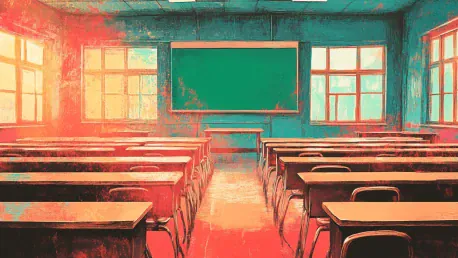The U.S. Department of Education’s Office of Elementary and Secondary Education has allocated a substantial grant totaling $3,954,518 to two professors from the University of Hawaiʻi at Mānoa College of Education, Erin Centeio and Kuʻulei Serna. This grant is part of the initiative “I Paʻa Ka Huewai Pawehe,” which translates to “So that our prized water gourds are made firm.” It aims to enhance the academic performance and overall well-being of Native Hawaiian students.
The primary focus of this grant is to integrate physical, mental, and emotional well-being into the academic life of Native Hawaiian keiki. Key issues that the program seeks to address include high obesity rates and inadequate physical activity among Native Hawaiian youth. Additionally, the program aims to tackle challenges these students face due to cultural trauma, affecting their success in traditional educational settings. The overarching goal is to foster comprehensive development by improving not only their health and physical education but also incorporating cultural education and support mechanisms.
Holistic Child Development
The program emphasizes a holistic approach to child development by addressing the “whole child” concept, ensuring physical, mental, and emotional health are all fundamental to academic success. By focusing on these interconnected aspects of well-being, the initiative aims to create a supportive learning environment tailored to the needs of Native Hawaiian students. The grant highlights the importance of nurturing each aspect of a child’s development to foster better academic outcomes and personal growth.
Cultural Relevance
Central to the initiative is the integration of ʻāina-based education, which is a method of learning grounded in Hawaiian culture and environmental stewardship. This culturally relevant approach aims to make education more meaningful and impactful for Native Hawaiian students by connecting their academic experiences to their cultural heritage and environments. By incorporating these elements into the curriculum, the program seeks to inspire and engage students in ways that resonate with their identity and cultural background.
Collaborative Partnerships
A significant component of the initiative is the collaborative effort between the University of Hawaiʻi, the Hawaiʻi Department of Education, and the Hawaiʻi Department of Health. This community-based approach to education and health underscores the importance of collective action in addressing the unique challenges faced by Native Hawaiian students. The collaborative nature of the project aims to pool resources and expertise from various sectors to create a comprehensive support system for the students.
Expansion and Scale
Building on the initial funding received in 2021, which totaled $2.85 million, the new grant allows the program to expand from its original 20 schools on Oʻahu and Kauaʻi to an additional 15 schools on Hawaiʻi, Maui, and Molokai. This expansion is set to impact over 25,000 students, demonstrating a significant scale-up in its second phase. The increased funding and broader reach will enable the program to support a larger number of students, offering them the benefits of a holistic, culturally relevant educational experience.
Correlation Between Health and Academic Performance
There is a common understanding among project collaborators that the overall health of students is directly correlated with their academic performance. This recognition underscores the need for interventions targeting comprehensive student health to facilitate academic success. By addressing physical, mental, and emotional well-being, the program fosters an environment where students can thrive both academically and personally.
Conclusion
The U.S. Department of Education’s Office of Elementary and Secondary Education has awarded a significant grant of $3,954,518 to University of Hawai‘i at Mānoa College of Education professors Erin Centeio and Ku‘ulei Serna. This funding supports the initiative “I Paʻa Ka Huewai Pawehe,” which translates to “So that our prized water gourds are made firm.” The project aims to boost academic performance and well-being among Native Hawaiian students.
The grant’s core objective is to blend physical, mental, and emotional well-being into the daily academic experiences of Native Hawaiian children. It addresses pressing issues like high obesity rates and insufficient physical activity among Native Hawaiian youth. Additionally, the initiative seeks to resolve challenges stemming from cultural trauma, which affects these students’ success in conventional educational environments. Through this program, the ultimate goal is to promote comprehensive growth by enhancing not only health and physical education but also integrating cultural education and support systems for these students.









